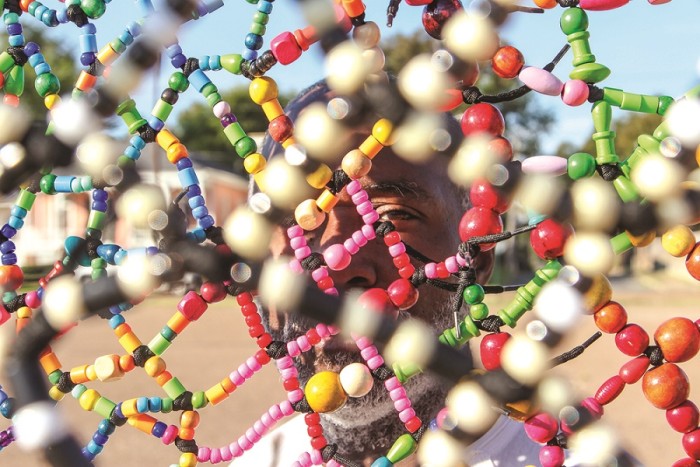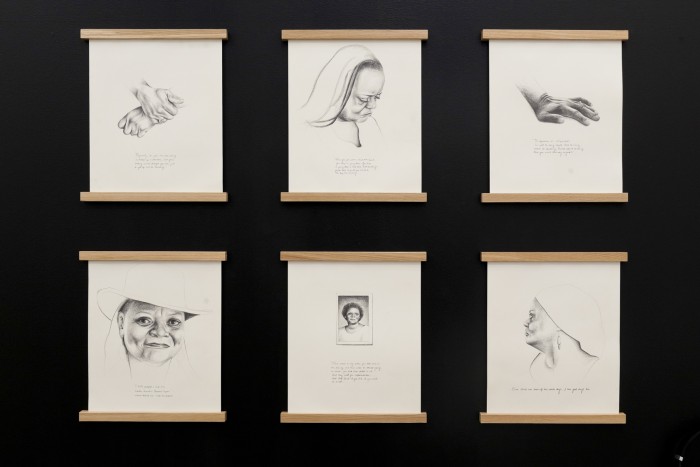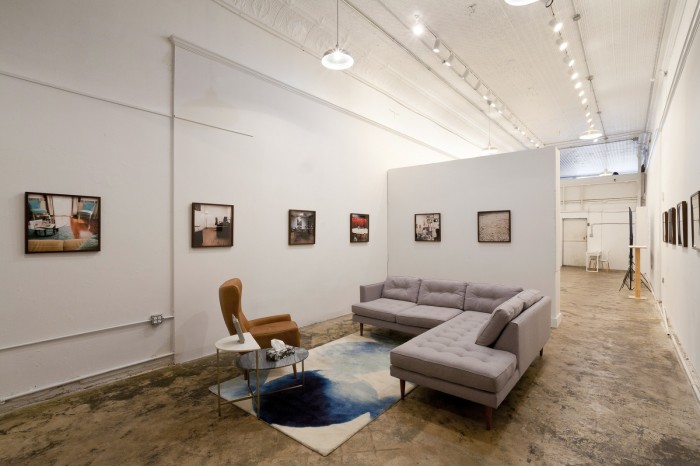Reading time: 3 minutes

08.04.2017
Pelican Bomb, New Orleans, Louisiana
March 10, 2017 – April 23, 2017



Artists: Tatyana Fazlalizadeh; Saul Robbins; Rachel Wallis; Evan Falbaum; and Residents of Shreveport, Louisiana, under the Direction of Nick Cave
Pelican Bomb presents Mutual Support, a group exhibition highlighting artists whose practices engage issues of mental health and wellness. Whether in a doctor’s office, at home, or in public spaces, these artists center the process of taking care of others through conversation and collective action and address the connections between physical, social, and spiritual well-being. Though distinct in their approaches, each of these projects affirms the important role art can play in the creation and support of healthier, more caring communities.
In a new series of photographs commissioned by Pelican Bomb, Saul Robbins documents diverse sites of both clinical and spiritual healing throughout New Orleans. An expansion of the artist’s Initial Intake project, which matter-of-factly captures the empty chairs and offices of psychotherapy professionals in New York, these photographs examine the experience of architecture, design, and intimacy in healing spaces. Together they suggest a collaborative and holistic approach to mental-health care, an assertion echoed by his inclusion of a broad range of locations fostering personal and collective wellness practices like CrescentCare, Ashé Cultural Arts Center, the New Orleans Musicians’ Clinic, and Dancing Grounds.
Each Saturday during the exhibition, Pelican Bomb Gallery X is home to a pop-up wellness center —a continuation of Robbins’ How Can I Help? – An Artful Dialogue installation— offering free, one-on-one listening and activity sessions with artists and health professionals working across disciplines.
Mutual Support also features a group of six drawings by Tatyana Fazlalizadeh, who is best known for her guerrilla poster campaign against street harassment, Stop Telling Women to Smile. In this new series, made specifically for the exhibition, Fazlalizadeh has translated her discussions about her mother’s bipolar disorder into a collection of tender portraits of her mother’s face and hands. By capturing these small, personal gestures, Fazlalizadeh aims to destigmatize illness. And in depicting her own mother’s body, the drawings are an exploration of illness and its biological and social ramifications across generations, especially for women of color. The artist’s drawings are complemented by a recorded conversation with her mother that gives a more intimate understanding of their relationship.
An interrelated video and installation on view spotlight internationally acclaimed artist Nick Cave’s eight-month-long collaborative project with residents in Shreveport, Louisiana. Director Evan Falbaum’s film AS IS by Nick Cave (2016) documents the making of a multimedia performance in downtown Shreveport’s historic Municipal Auditorium that brought together Cave’s celebrated Soundsuits, Bounce icon Big Freedia, and over 75 artists from Northwest Louisiana. At Pelican Bomb Gallery X, Falbaum’s documentary is presented alongside an installation of 12 beaded blankets, created by Shreveport residents to represent their stories and burdens. Cave selected five local artists —Heather Beauvais, Jerry Davenport, Karen T. La Beau, Sherry Tamburo, and Kathryn Usher— to work with four social service agencies —Mercy Center, Providence House, Volunteers of America LightHouse, and Volunteers of America McAdoo— to create these blankets, giving voice to otherwise marginalized populations. During the original performance, the blankets were ceremoniously stacked on Cave’s supine body by their makers before the artist ritualistically emerged, dragging the heavy beads offstage.
Mutual Support also includes one panel from Chicago-based artist Rachel Wallis’ Gone but Not Forgotten community quilting project. Beginning in 2015, Wallis collaborated with grassroots activist group We Charge Genocide to hold a series of quilting circles to memorialize 144 individuals killed by the Chicago Police Department or in police custody over the previous ten years. Wallis and participants collectively stitched a six-panel quilt while reading the victims’ stories aloud and discussing social justice, accountability, and safety. Gone but Not Forgotten aims to propose a model for collectively processing loss and instigating action. The victims’ names, ages, and dates of death are permanently recorded on the quilt, and while the panel on view in the gallery includes a star honoring Rekia Boyd, whose murder by an off-duty police detective made national headlines, the project puts forth the many other stories that don’t necessarily make it to our newsfeeds.
Comments
There are no coments available.